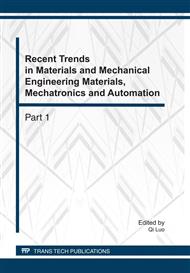p.1547
p.1554
p.1560
p.1566
p.1572
p.1578
p.1584
p.1588
p.1593
Knowledge Acqusion Model via E-Learning in SNS Oriented Knowledge Community of Enterprise
Abstract:
The purpose of this paper is to introduce a general scenario for Enterprise SNS knowledge community of E-Learning to promote knowledge innovation, including four sub processes and two knowledge techniques. First, four sub processes are researched respectively, including: motivation to acquire new knowledge, knowledge searching and collection, knowledge decision-making and knowledge innovation. Second, knowledge base and recommendation are two knowledge techniques. The paper underscores the significance of E-Learning to improve knowledge innovation in enterprise and a case study is given.
Info:
Periodical:
Pages:
1572-1577
Citation:
Online since:
May 2011
Authors:
Keywords:
Price:
Сopyright:
© 2011 Trans Tech Publications Ltd. All Rights Reserved
Share:
Citation:


